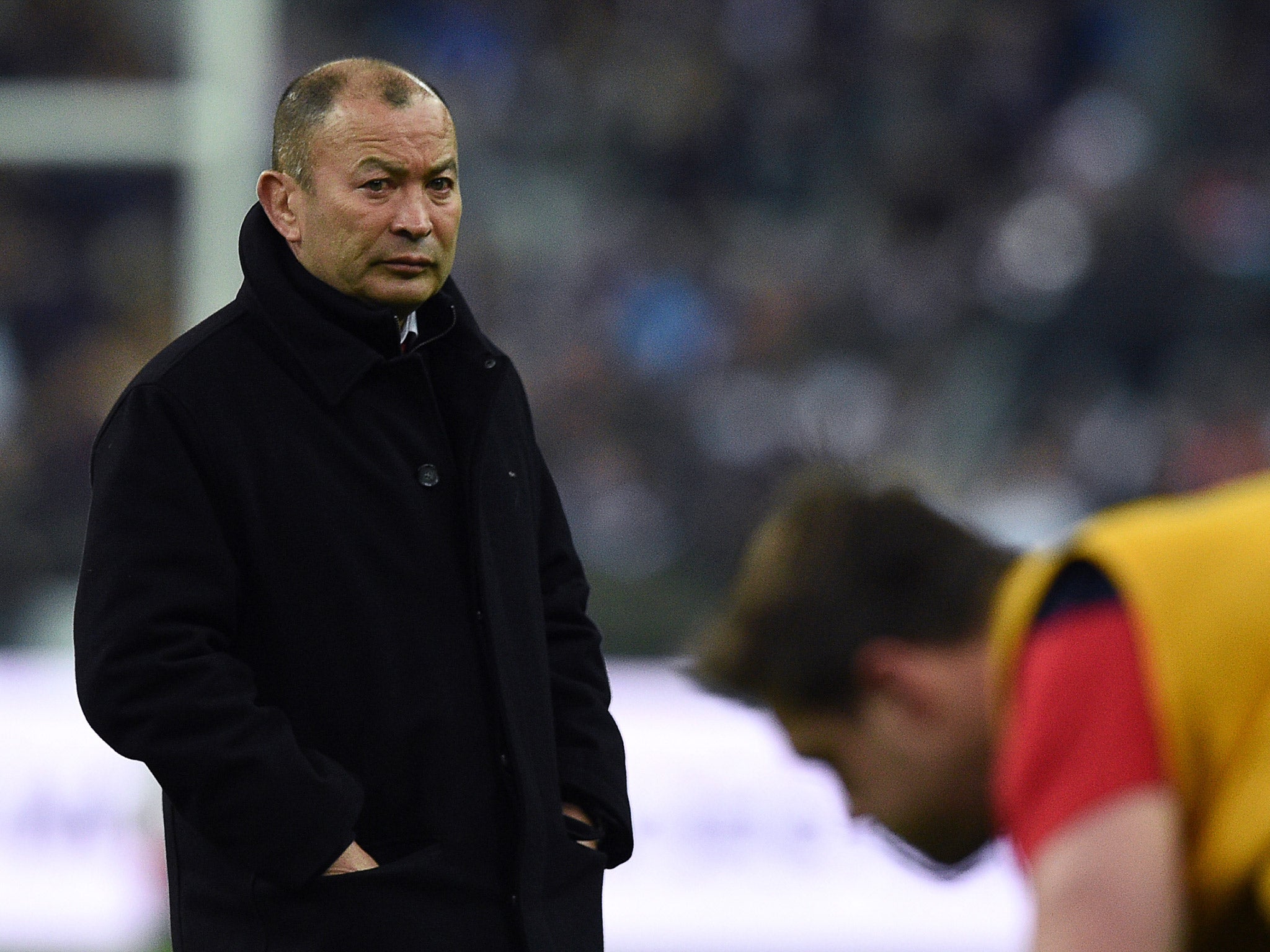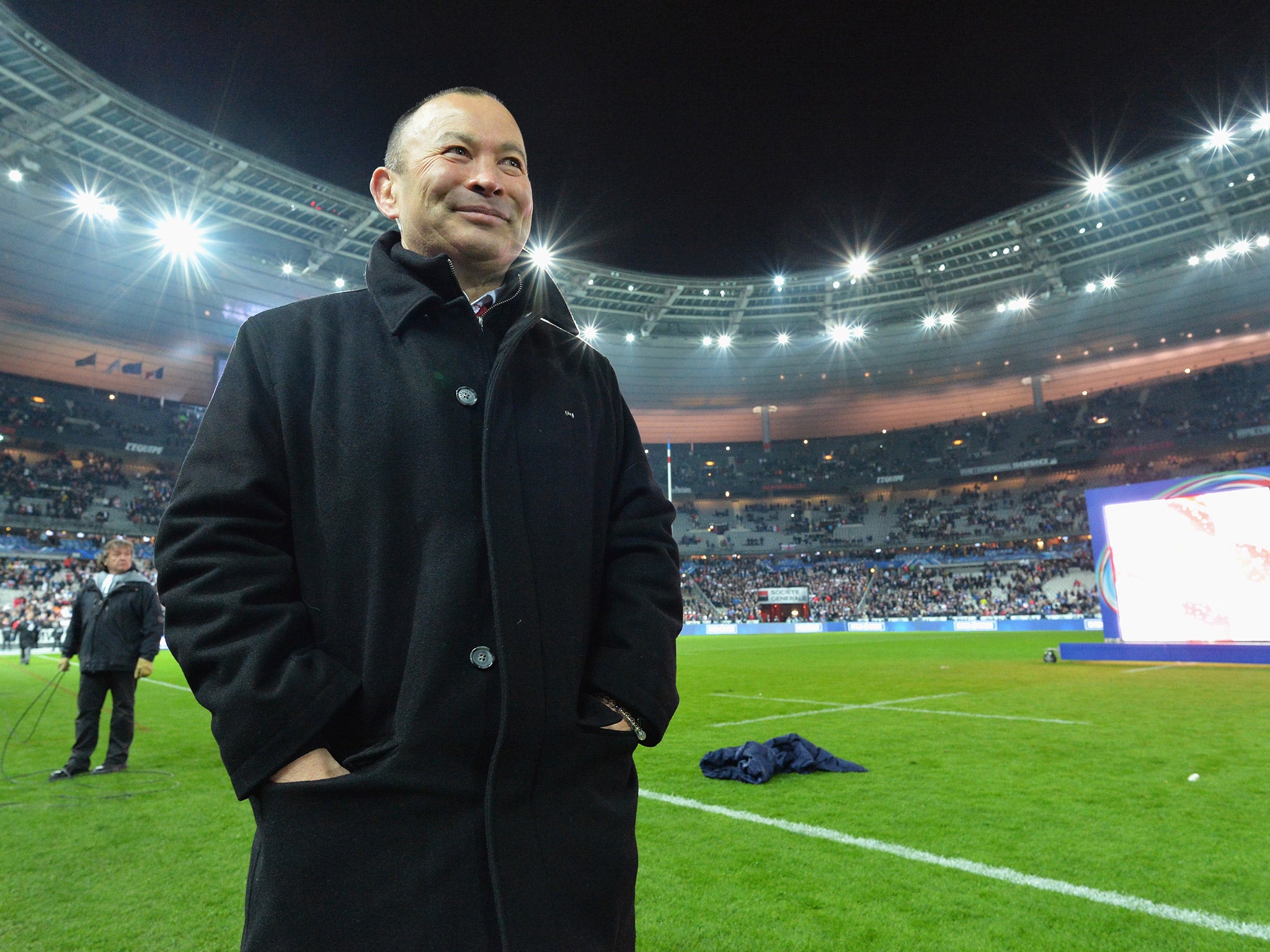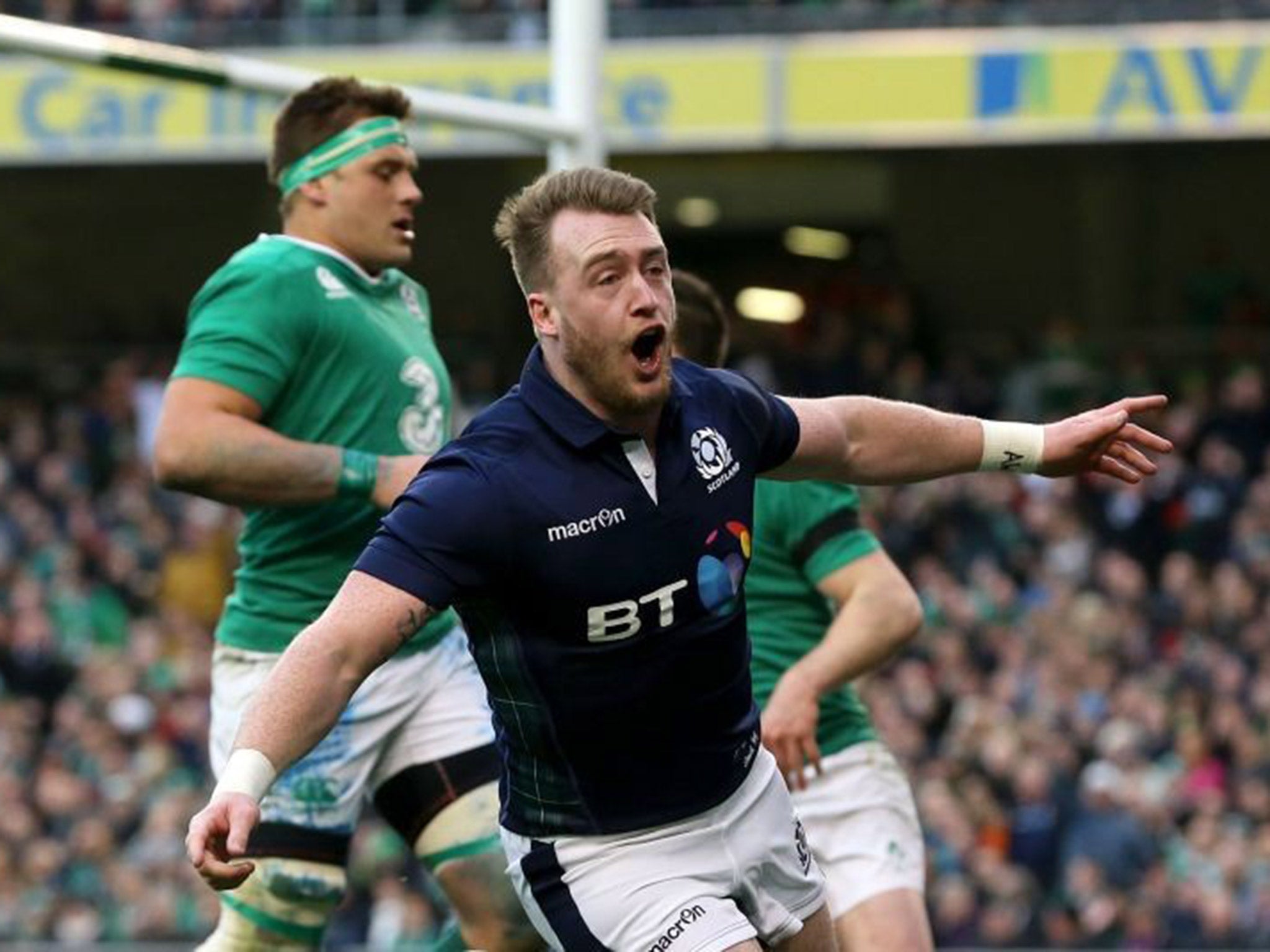England win Six Nations Grand Slam: Eddie Jones reaps benefit of a flood tide for England
New coach deserves the plaudits for taking unfamiliar pool of players to Six Nations title, writes Hugh Godwin

Among the many quips and barbs bandied about by Eddie Jones in an eventful first four months as England’s head coach, the sporting staple “the more I practise, the luckier I get” has yet to pass his lips, but it would be apt. After the savage letdown of the World Cup for the host nation, Jones knew there was a tide of talent available to him which it was his good fortune to be taking at the flood.
That it has led on to a Six Nations title at the first attempt is testament to the Australian’s skill as a manager, the quick adaptation to new roles by his assistant coaches, Steve Borthwick and Paul Gustard, and the mostly humdrum opposition at hand in the Championship.
Global domination is Jones’s stated aim and even after the Six Nations success, the world rankings continue to be a sobering sight; the top three teams are New Zealand, Australia and South Africa. The fixtures coming England’s way will give a truer guide to their position and potential, with a cash-cow match against Wales at Twickenham in May followed by three Tests in Australia in June and the visits of South Africa, Fiji, Argentina and Australia in the autumn.
Jones acted decisively after October’s pool-stage World Cup demise. He switched Chris Robshaw to his best position at blindside and blooded youngsters Maro Itoje (right), Paul Hill, Jack Clifford and Elliot Daly. By being able to pick Dylan Hartley – always the country’s best hooker and a captain in the making if he could stop getting suspended – and avoiding ruinous injuries, England have enjoyed a promising few weeks.
These are the foothills of what Jones hopes will be the summit of a World Cup win in Japan in 2019, chiming with the verdict of Rob Andrew, the Rugby Football Union’s professional rugby director, before the 2015 event that this England side was three years away from producing its best.
We know already it will be a raucously engaging journey because Jones challenges lazy opinions and fosters debate. His broad-brushstroke pre-match verdicts on the opposition – “they’re well coached”, “they kick 60 per cent of the time” and so on – will not feel so fresh after three, four or five games against Wales, Ireland and the rest. Results will be the measure of him and his team.
But his humour reminds us that sport can be fun. It brings to mind the first Six Nations match this correspondent covered for The Independent on Sunday, in Rome in 2001, and bumping into the Ireland centre Rob Henderson in a car park outside the Stadio Flaminio. Hendo had just scored three tries, he was puffing on a celebratory cigarette and not far away there was a large glass of Chianti with his name on it. Yet he was reaping the rewards of a new training regime begun the previous summer.
“I wanted help and I wasn’t getting anywhere with athletics clubs,” he told me. “So I went to the Yellow Pages and looked under ‘F’ for fitness.”
So here’s to Jones and to players continuing to see the lighter side and to the media giving them the intelligent space in which to do so. In these fast and furious days, a racial epithet can barely escape a combatant’s lips before the world and his wife has their strident opinion on the matter (assuming that “world and his wife” remains an acceptable phrase).
Those opinions may or may not carry the weight of sound judgement informed by knowledge – but there they are, blaring away like police sirens in the time it takes to make 140 strikes of a keyboard. Read them and you may weep; ignore them and you risk being out of the loop.

Elsewhere in the Six Nations, there were only crumbs of comfort around England’s feast. The Scotland full-back Stuart Hogg has been joyous to watch, and he belongs to that elite bracket of player who operate on a plane that leaves most contemporaries gasping for air.
Jamie Roberts is another man who could lay claim to a place in a World XV. This may seem perverse when the statuesque Welsh centre possesses a much more confined skillset than Hogg’s brand of innovative thinking and spatial awareness.
Yet Roberts, at the age of 29, is transcendent in a different way, rising above the rigours and routines of Six Nations parochialism to take control of both team-mates and opponents, particularly in Wales’s win over Scotland. Wales are still young and could re-emerge to challenge England; ditto Ireland if everyone gets fit and the likes of the Ulster inside-centre Stuart McCloskey hit the heights.

With four Antipodean head coaches, and players of all kinds of extraction from England’s Vunipola brothers and the returning wrecking-ball Manu Tuilagi to Ireland’s and Scotland’s South African “project” players, the Six Nations has never been more cosmopolitan. But it is also hidebound.
The year 2019 is not only a target but also a possible turning point, when new broadcast contracts may enable a new global fixture schedule. Europe’s emerging countries, led by Georgia, must be given their head, either through promotion into the Six Nations or as part of a new tournament to replace it. Comfortable certainties must be challenged, crusty methods revised, and if it means doing away with something that has worked well in the past, so it must be done to make the future even better.
Join our commenting forum
Join thought-provoking conversations, follow other Independent readers and see their replies
Comments